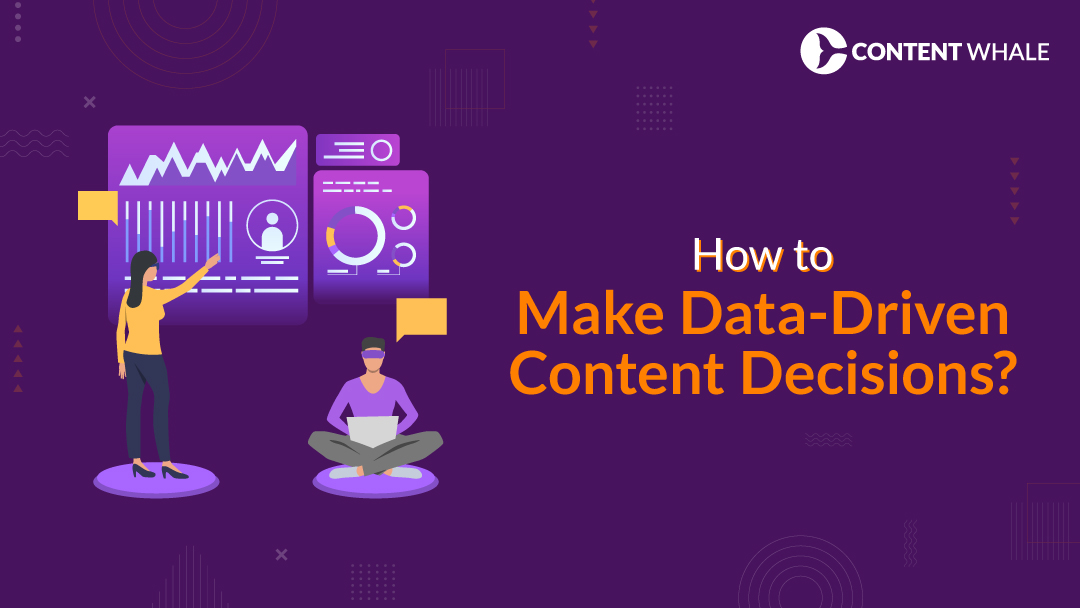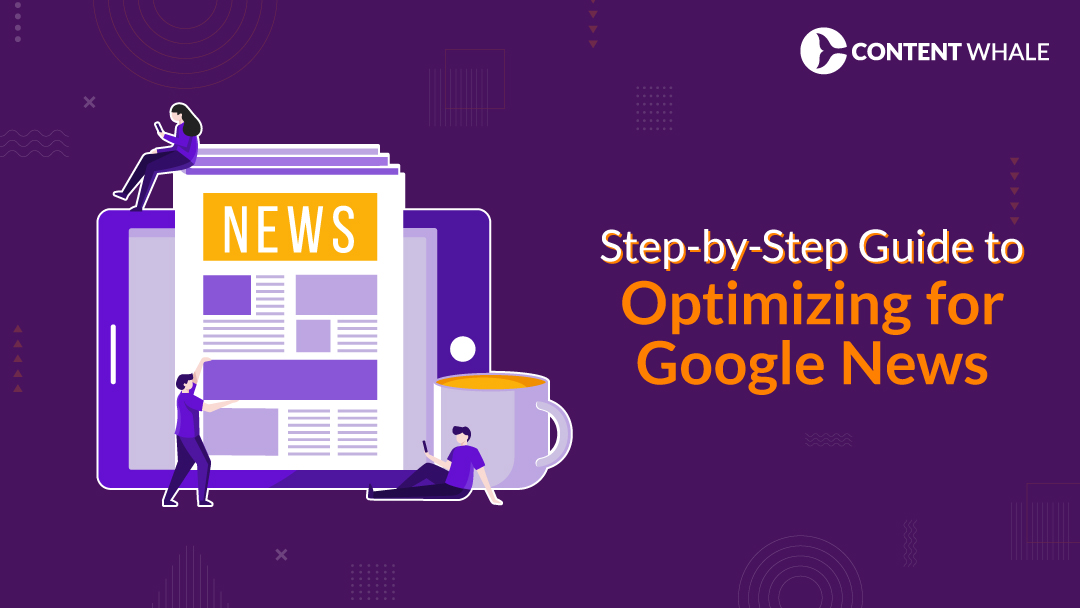Content marketing is increasingly embracing data-driven approaches, offering substantial advantages over traditional methods. Utilizing data-driven content decisions enables marketers to tailor content precisely to audience needs, leading to higher engagement and improved results.
Recent studies show that businesses using data driven content marketing are more likely to achieve their goals, with a significant increase in ROI.
Benefits of adopting a data driven content strategy include enhanced content relevance, better audience targeting, and the ability to track and measure performance effectively.
Tools like Google Analytics, SEMrush, and Ahrefs play a crucial role in gathering and analyzing data, helping marketers understand audience preferences and behavior.
This blog will explore the importance of data analytics in content marketing and provide insights into the tools and techniques that can drive success.
From understanding audience demographics to analyzing performance metrics, we’ll cover the essential aspects of making informed content decisions based on data.
Understanding the Importance of Data in Content Marketing
Data has become a cornerstone of effective content marketing, revolutionizing how marketers create and deliver content.
Leveraging data-driven content decisions allows marketers to produce content that is highly relevant and engaging to their target audience.
By understanding audience preferences and behaviors through data analytics in content marketing, businesses can ensure their content meets the needs and expectations of their audience.
Data improves content relevance and effectiveness by providing insights into what types of content resonate with different segments of the audience.
For example, analyzing metrics like page views, time on page, and social shares can reveal which topics and formats are most appealing.
This information helps marketers adjust their data driven content strategy to focus on high-performing content types, resulting in better engagement and higher conversion rates.
Examples of successful data driven content marketing strategies are abundant.
Netflix, for instance, uses extensive data analysis to recommend shows and movies to its users, significantly improving user satisfaction and retention.
Similarly, BuzzFeed analyzes data to determine which articles and quizzes are most likely to go viral, optimizing their content for maximum reach and impact.
Understanding audience preferences and behaviors is crucial for crafting effective content.
Data provides a clear picture of who your audience is, what they care about, and how they interact with your content.
This knowledge allows marketers to create personalized content experiences that drive deeper connections and foster loyalty. By continuously analyzing data, businesses can stay ahead of trends and adapt their strategies to meet evolving audience needs.
The importance of data-driven content decisions in modern marketing cannot be overstated.
By leveraging data to guide content creation and optimization, marketers can enhance the relevance, effectiveness, and impact of their content, ultimately driving better results and achieving their marketing goals.
Types of Data to Analyze for Content Decisions
Effective data-driven content decisions rely on analyzing a variety of data types to understand and meet audience needs. Here are the key types of data to consider:
1. Audience Data
Understanding your audience is the foundation of any successful data driven content marketing strategy.
Audience data includes demographics such as age, gender, location, and income level.
Additionally, psychographic data like interests, values, and lifestyle choices provide deeper insights into what motivates your audience.
Behavioral data, including past interactions with your content, purchase history, and website behavior, helps create detailed audience profiles.
This comprehensive understanding enables personalized content that resonates with different segments of your audience.
2. Performance Data
Performance data is critical for evaluating the success of your content and informing future data driven content strategy decisions.
Key performance indicators (KPIs) such as page views, time on page, bounce rates, and social shares indicate how well your content engages your audience.
Conversion rates and lead generation metrics show how effectively your content drives business outcomes.
Tools like Google Analytics provide detailed performance data, allowing you to track the success of individual pieces of content and overall content marketing efforts.
3. Competitor Data
Analyzing competitor data helps benchmark your performance against industry standards and identify opportunities for differentiation.
Tools like SEMrush and Ahrefs allow you to analyze competitors’ content strategies, including their top-performing content, keyword usage, and backlink profiles.
This information can reveal gaps in your own content strategy and inspire new content ideas.
Understanding what works for your competitors can inform your data-driven content decisions, helping you create content that stands out in the market.
4. Engagement Data
Engagement data provides insights into how your audience interacts with your content across different platforms.
Metrics such as likes, comments, shares, and mentions on social media offer valuable feedback on audience engagement and sentiment.
High engagement rates indicate that your content is resonating with your audience, while low engagement can highlight areas for improvement.
Tracking these interactions helps refine your data driven content strategy to boost engagement and build stronger connections with your audience.
Incorporating these types of data into your data analytics in content marketing efforts ensures that your content is relevant, engaging, and effective.
By continuously analyzing and adapting based on these insights, you can make informed decisions that drive better results and achieve your marketing goals.
Tools for Data Collection and Analysis
| Tool | Key Features | Benefits for Data-Driven Content Strategy | Integration Capabilities | Pricing Model |
|---|---|---|---|---|
| Google Analytics | – Website traffic analysis – Audience segmentation – Goal tracking | – Provides detailed insights into user behavior – Identifies top-performing content | – Integrates with Google Ads, SEMrush, etc. | – Free basic version – Premium version (Google Analytics 360) |
| SEMrush | – SEO and keyword research – Competitive analysis – Content marketing toolkit | – Identifies high-performing keywords – Analyzes competitor strategies – Discovers content gaps | – Integrates with Google Analytics, Google Search Console, etc. | – Subscription-based – Plans starting from $119.95/month |
| Ahrefs | – Backlink analysis – Keyword performance data – Content Explorer | – Provides comprehensive backlink data – Identifies popular content topics – Analyzes competitor content | – Integrates with Google Search Console, Data Studio, etc. | – Subscription-based – Plans starting from $99/month |
| HubSpot | – Content management – Social media management – Analytics and reporting | – Offers an integrated marketing approach – Tracks performance across channels – Provides lead generation insights | – Integrates with Salesforce, WordPress, Google Analytics, etc. | – Free basic version – Paid plans starting from $50/month |
| Tableau | – Data visualization – Interactive dashboards – Real-time data analysis | – Converts complex data into actionable insights – Identifies patterns and trends easily – Enhances decision-making process | – Integrates with various data sources including Excel, SQL, Google Analytics, etc. | – Subscription-based – Plans starting from $70/user/month |
To make informed data-driven content decisions, leveraging the right tools for data collection and analysis is essential. Here are some of the most effective tools available:
1. Google Analytics
Google Analytics is a powerful tool for tracking website performance and understanding user behavior.
It provides detailed insights into metrics such as page views, bounce rates, session duration, and conversion rates.
By analyzing this data, marketers can identify which content resonates most with their audience and where improvements are needed.
Google Analytics also offers advanced features like audience segmentation and goal tracking, which are vital for a comprehensive data driven content marketing strategy.
2. SEMrush
SEMrush is an all-in-one marketing tool that offers extensive features for SEO, content marketing, and competitive analysis.
It helps marketers discover high-performing keywords, track search engine rankings, and analyze competitor strategies.
SEMrush’s content marketing toolkit provides insights into trending topics, content gaps, and backlink profiles, aiding in the creation of a robust data driven content strategy.
Its ability to integrate with Google Analytics and other tools enhances its value, offering a seamless data analysis experience.
3. Ahrefs
Ahrefs is another essential tool for data analytics in content marketing, particularly for SEO and backlink analysis.
It provides comprehensive data on keyword performance, competitor content, and backlink profiles.
Ahrefs’ Content Explorer feature allows marketers to find popular content in their niche, analyze its performance, and identify potential content opportunities.
By using Ahrefs, marketers can develop more effective content strategies based on solid data insights.
4. HubSpot
HubSpot offers a suite of tools for inbound marketing, including content management, social media management, and analytics. Its robust analytics platform provides insights into website traffic, lead generation, and customer behavior.
HubSpot’s integrated approach allows marketers to see how their content performs across different channels and make data-driven content decisions to optimize their strategy.
5. Tableau
Tableau is a powerful data visualization tool that helps marketers turn complex data into actionable insights.
It allows for the creation of interactive dashboards that display key performance metrics and trends.
By visualizing data from various sources, marketers can easily identify patterns and make informed decisions to improve their data driven content marketing efforts.
Using these tools, marketers can collect, analyze, and interpret data effectively, ensuring that their content strategies are informed by accurate and actionable insights.
Incorporating these tools into your workflow will help you make better data-driven content decisions, ultimately enhancing the effectiveness of your content marketing efforts.
Steps to Create a Data-Driven Content Strategy
Creating a data-driven content strategy involves several key steps to ensure your content is both effective and aligned with your business goals.
Here’s a guide to developing a strategy based on data-driven content decisions:
1. Set Clear Goals and KPIs
Start by defining clear goals for your content marketing efforts. These goals should align with your overall business objectives and be specific, measurable, achievable, relevant, and time-bound (SMART).
Key Performance Indicators (KPIs) such as website traffic, engagement rates, and conversion rates will help you measure the success of your data driven content marketing strategy.
2. Collect Relevant Data
Gather data from various sources to inform your content strategy.
Use tools like Google Analytics for website performance, social media analytics for engagement metrics, and CRM systems for customer data.
Collecting data on audience demographics, behavior, and preferences will provide valuable insights into what content resonates with your audience.
3. Analyze the Data
Use data analytics in content marketing to interpret the collected data. Identify trends, patterns, and areas of opportunity.
Look for high-performing content topics, formats that engage your audience, and channels that drive the most traffic and conversions.
Competitive analysis with tools like SEMrush and Ahrefs can also reveal content gaps and opportunities.
4. Plan and Create Content
Based on your data analysis, develop a content plan that addresses the needs and interests of your audience.
Create a content calendar that outlines what content will be published, when, and on which platforms. Ensure your content is optimized for SEO to improve visibility and reach.
5. Measure and Adjust
Regularly monitor the performance of your content using the KPIs you’ve set. Use tools like Google Analytics and HubSpot to track metrics and gather insights.
Evaluate what’s working and what’s not, and be prepared to adjust your strategy accordingly.
Continuous optimization based on data ensures your data driven content strategy remains effective and relevant.
By following these steps, you can create a robust content strategy that leverages data-driven content decisions to enhance your marketing efforts and achieve better results.
Conclusion
Embracing data-driven content decisions is essential for modern content marketing success.
By leveraging data analytics in content marketing, businesses can create content that resonates with their target audience, improves engagement, and drives conversions.
Implementing a data driven content strategy involves setting clear goals, collecting and analyzing relevant data, and continuously optimizing your approach based on performance metrics.
Using tools like Google Analytics, SEMrush, and Ahrefs, marketers can gain valuable insights into audience behavior and content performance.
This informed approach helps in creating more targeted and effective content, ultimately leading to better marketing outcomes.
Start integrating data driven content marketing practices into your strategy to stay competitive and achieve measurable results.
Continuous learning and adaptation based on data insights will ensure your content remains relevant and impactful.
Embrace the power of data to transform your content marketing efforts and drive business growth.
For expert assistance in crafting a data-driven content strategy, consider reaching out to Content Whale.
FAQs
1. What is data-driven content marketing?
Data-driven content marketing involves using data to guide the creation, distribution, and optimization of content.
By analyzing metrics such as audience demographics, engagement rates, and conversion rates, marketers can make informed data-driven content decisions that enhance content relevance and effectiveness.
2. How can I collect data for my content strategy?
Data can be collected from various sources including website analytics, social media insights, and customer feedback.
Tools like Google Analytics, social media platforms’ analytics, and CRM systems provide valuable data on audience behavior and preferences, helping to inform a data driven content strategy.
3. What are the best tools for analyzing content performance?
Several tools are essential for data analytics in content marketing. Google Analytics offers detailed insights into website traffic and user behavior.
SEMrush provides comprehensive SEO and competitive analysis. Ahrefs excels in backlink and keyword research. These tools help in making informed data-driven content decisions.
4. How do I measure the success of my content strategy?
Success can be measured using Key Performance Indicators (KPIs) such as page views, time on page, engagement rates, and conversion rates.
Regularly reviewing these metrics helps determine the effectiveness of your data driven content marketing efforts and identify areas for improvement.
5. Can data-driven decisions improve content ROI?
Yes, making data-driven content decisions can significantly improve content ROI.
By tailoring content to audience preferences and optimizing based on performance data, businesses can increase engagement and conversion rates, leading to better returns on their content marketing investments.
Incorporating these practices into your content strategy ensures that your marketing efforts are targeted, effective, and based on solid data insights.
For more guidance on creating a successful data driven content strategy, consider partnering with experts like Content Whale.





